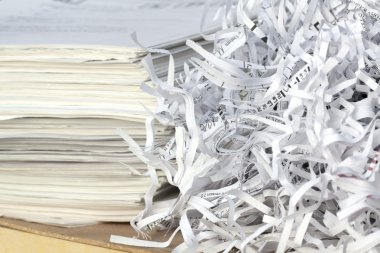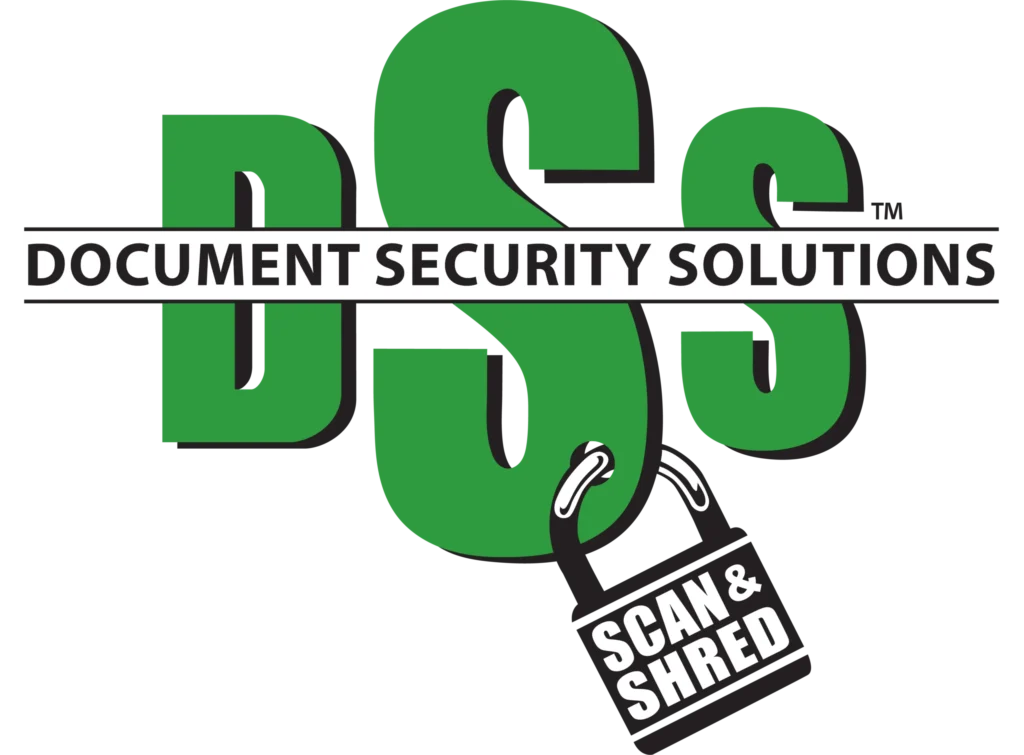Just like a meticulous gardener, you’re pruning your company’s old documents. But are you aware of the legal aspects? In this article, we’ll explore the regulations and compliance around document destruction. You’ll learn about legal requirements, effect of non-compliance on your business and best practices to ensure you’re playing by the rules. Stay informed, stay compliant!
Understanding the Importance of Document Destruction
It’s crucial to understand the importance of document destruction, especially when it comes to legal aspects and compliance. As a responsible entity, you’re required to safely dispose of sensitive documents in line with established regulations. This isn’t just about protecting sensitive information but also about mitigating the environmental impact.
The process of document destruction has evolved over time, largely due to technological advancements. Today’s shredding machines are designed to reduce paper into fine particles that are nearly impossible to reconstruct. However, these advances aren’t solely focused on security; they also consider the environment by ensuring reduced waste and promoting recycling.
Inadequate document destruction could lead to serious consequences such as data breaches or non-compliance penalties. Therefore, you should stay informed and updated about current document disposal practices and laws within your jurisdiction.
Remember, it’s not enough just to destroy documents – how you do it matters too. Prioritize methods that ensure total destruction while minimizing environmental harm. Technological advancements can aid in achieving this balance between security and sustainability.
In essence, understanding the importance of proper document destruction is vital for legal compliance, data protection, and environmental conservation. It’s a responsibility that shouldn’t be taken lightly.
Overview of Legal Requirements for Document Destruction
You’ve got to know there are specific laws governing how to dispose of certain papers. Document disposal methods vary depending on the type, sensitivity, and legal requirements tied to the paper in question. Laws such as the Fair and Accurate Credit Transactions Act (FACTA) and Health Insurance Portability and Accountability Act (HIPAA) specify stringent rules for disposing of documents containing sensitive information.
Adherence to these regulations is not merely advisable, it’s mandatory. Non-compliance can lead to severe penalties including hefty fines or sanctions against your organization. It’s crucial that you familiarize yourself with these legal obligations and integrate them into your record retention policies.
Remember, proper document destruction doesn’t just mean tossing paperwork into a shredder. Depending on the nature of the document, it may need to be incinerated or pulped. Record retention policies play a vital role here – they outline how long each type of document must be kept before it can be safely destroyed in compliance with relevant laws.
Compliance Measures in Document Destruction
In this discussion, you’ll dive into the vital process of implementing compliance measures in document destruction. You’ll explore how these measures not only uphold legal and ethical standards but also safeguard your business from potential pitfalls. Furthermore, we’ll discuss the significant legal implications if you don’t comply, illuminating the severe consequences that non-compliance can usher in.
Implementing Compliance Measures
Implementing compliance measures isn’t just about adhering to laws, it’s also crucial for maintaining trust with clients and avoiding potential legal complications. In the realm of document destruction, you must prioritize Policy Development and Staff Training. Your policy should be comprehensive, outlining clear guidelines on the correct methods of discarding sensitive documents while complying with all legal requirements. However, a well-drafted policy is ineffective without proper staff training. Ensure your employees are trained regularly on how to implement these policies effectively and understand their importance in ensuring compliance and maintaining client trust. Remember that an informed team is a compliant one; therefore, never underestimate the value of thorough staff training alongside robust policy development.
Legal Implications of Non-compliance
Failing to abide by the rules can land you in hot water, with serious consequences ranging from hefty fines to damage to your company’s reputation. Non-compliance penalties are no joke; they’re designed to enforce compliance and deter negligence.
Here are some potential legal pitfalls:
– Hefty financial penalties for non-compliance
– Irreparable damage to your business reputation
– Legal proceedings that consume valuable time and resources
– Potential loss of business licenses
– Personal liability for corporate officers
Legal defense strategies are crucial when faced with these challenges. You’ll need a robust understanding of compliance laws, an effective document destruction process, and a proactive approach to avoid getting caught in the crosshairs of regulatory bodies. Remember, prevention is always better than cure.
Document Destruction and Privacy Laws
As we delve deeper into the realm of document destruction and privacy laws, it’s crucial for you to grasp an overarching understanding of these privacy laws. You’ll find that they’re not just rules but essential guidelines designed to protect sensitive information during its lifecycle, which includes the point of its lawful destruction. So let’s take a closer look at these laws while also focusing on the stringent compliance requirements involved in document destruction.
Privacy Laws Overview
You’re about to delve into the complex world of privacy laws, which play a crucial role in document destruction. The ever-evolving landscape of data encryption and the increasing regularity of privacy breaches necessitate strict adherence to these laws.
Gain insight into key aspects:
– Data Encryption: It’s an essential preventive measure against breaches. Always encrypt sensitive documents before disposal.
– Privacy Breaches: They can lead to hefty fines and damage your reputation. Be vigilant in protecting information.
– Compliance: It isn’t optional; it’s mandatory. Stay up-to-date with evolving laws.
– Penalties: Non-compliance can result in severe penalties. Avoid risking your business integrity.
– Best practice: Adopt industry best practices for document destruction.
Destruction Compliance Requirements
It’s vital to grasp the necessities of proper information disposal to prevent breaches and avoid hefty penalties. Destruction methods comparison plays a significant role in this. You’re urged to carefully scrutinize each method’s efficiency, security levels, costs, and environmental impact before making your choice.
Document lifespan management is another crucial aspect of destruction compliance requirements. It’s not enough to just destroy documents; you must know when it’s legally safe to do so. This involves understanding retention schedules and data classifications.
How Non-compliance Can Affect Your Business
Non-compliance with document destruction laws can severely damage your business’s reputation and financial standing. This isn’t a risk you should take lightly, as non-compliance penalties are hefty and the reputation damage is significant.
Here’s how non-compliance can affect your business:
– Non compliance penalties: Legal fines for not adhering to data protection laws can be monumental, potentially running into millions of dollars.
– Reputation damage: Breaching confidentiality can destroy trust with your clients or partners, causing them to take their business elsewhere.
– Loss of Business Opportunities: Your company’s inability to comply could deter potential investors or partnerships.
– Operational disruptions: Legal proceedings may divert resources away from core operations, impacting efficiency and productivity.
– Increased scrutiny: Non-compliant businesses often face increased auditing and regulatory scrutiny, which requires additional time and money.
Remember that maintaining compliance isn’t just about avoiding penalties. It’s about upholding your firm’s reputation in the market, retaining customer trust, and safeguarding future growth opportunities. Don’t let non-compliance become an obstacle in the path of your success.
Best Practices for Compliant Document Destruction
Let’s delve into the best practices for ensuring your company abides by document disposal laws. Your adherence to regulations begins with understanding effective destruction techniques and exploring outsourcing options.
| Technique | Description | Legal Compliance |
| Shredding | This is the most common method used. It involves cutting documents into unreadable pieces. | Compliant with many privacy laws, given that shredded material cannot be reassembled. |
| Pulverizing | This means reducing paper to dust or small particles through mechanical processes. | Compliant, as long as the pulverized matter cannot be reconstructed into readable form. |
| Outsourced shredding services | Companies handle your document destruction needs on-site or off-site. | Ensures compliance if they follow regulatory standards and provide a certificate of destruction. |
| Digital wiping | Deleting data on digital media so it can’t be recovered. | Usually compliant but depends on specific jurisdictional requirements. |
| Outsourced digital destruction services | Professionals erase or physically destroy electronic storage devices. | Compliance is ensured when using certified providers who offer documented proof of destruction |
It’s important you select a method that not only fits your organizational needs but also meets legal requirements. Reputable outsourcing options can save you time, money, and guarantee compliance with disposal laws. Remember, inadequate document destruction could lead to substantial penalties.
Case Studies: Legal Consequences of Improper Document Destruction
We’re now going to look at some real-life examples where improper disposal of sensitive material led to serious consequences. These cases underscore the importance of Shredding Techniques Efficiency and Document Destruction Ethics.
* The infamous Enron scandal, where crucial documents were improperly destroyed, leading to one of the largest bankruptcy in U.S history.
* In 2007, UK’s HM Revenue & Customs lost two CDs containing confidential data of 25 million individuals due to ineffective document management.
* A major US retail chain faced hefty fines after carelessly discarding customer records into a publicly accessible dumpster.
* The Veterans Affairs (VA) Department suffered a massive data breach in 2006 when an unencrypted laptop was stolen from an employee’s home.
* In 2018, Facebook came under scrutiny for their data handling practices resulting in substantial public backlash.
In these instances, inefficient shredding techniques or unethical document destruction caused significant harm and financial loss. You must ensure that your organization follows ethical document destruction practices and utilizes efficient shredding techniques to avoid similar pitfalls. By doing so you not only comply with legal obligations but also safeguard your company’s reputation and trustworthiness among stakeholders.
Frequently Asked Questions
What Are Some Common Misconceptions About Document Destruction?
You might think all destroyed documents are irrecoverable, a common destruction myth. Additionally, privacy concerns don’t vanish post-destruction. In reality, improperly destroyed data can often be retrieved and misused.
How Has the Advancement of Technology Affected Legal Requirements for Document Destruction?
Technology’s advancement has altered document destruction’s legal landscape. It’s heightened privacy laws, necessitating more rigorous digital shredding methods. Now, you can’t just toss digital files; they must be securely destroyed to maintain compliance.
What Are Some Cost-Effective Methods for Document Destruction That Still Comply With Legal Requirements?
You can utilize cost-effective shredding techniques for document destruction. It’s crucial to consider the environmental impact, so selecting methods like recycling shredded paper can help meet both budget and legal requirements.
How Can Businesses Educate Their Employees About the Importance of Proper Document Destruction?
You can educate your employees on proper document destruction through regular employee training. Incorporating destruction protocols into these sessions ensures they understand the legal importance of correctly disposing confidential information.
Can Document Destruction Be Outsourced to a Third-Party, and if So, What Should Be Taken Into Consideration When Choosing a Service Provider?
Yes, you can outsource document destruction. When choosing a provider, consider their data security measures and vendor transparency. It’s crucial they’re compliant with relevant regulations to protect your company from legal implications.





